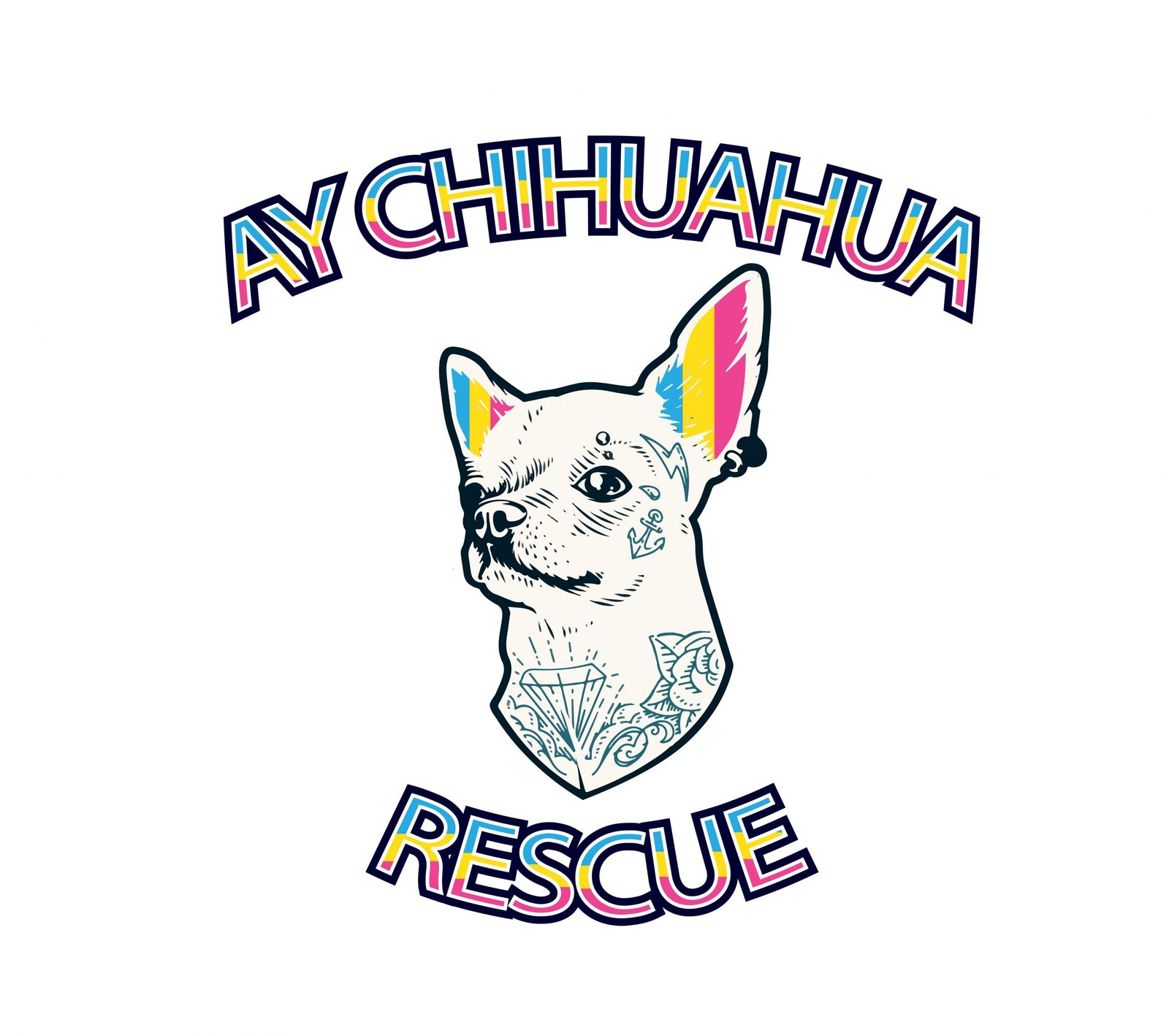Ay Chihuahua! Have you ever wondered where this phrase comes from? Well, let me tell you, it has a fascinating origin. Contrary to popular belief, it doesn’t just stem from a quirky expression of surprise. Instead, Ay Chihuahua has its roots in the rich cultural history of Mexico and specifically, the Chihuahua region.
Now, let’s delve into the significant aspects of the phrase. Ay Chihuahua finds its origins in the Chihuahua region of Mexico, known for its vibrant heritage and diverse culture. This catchphrase has become synonymous with surprise or astonishment, often used as an exclamation when faced with something unexpected. It showcases the influence of Mexican culture across borders and has even made its way into popular culture, appearing in movies, music, and various forms of media. With its catchy and expressive nature, Ay Chihuahua serves as a reminder of the cultural connections that extend beyond geographical boundaries.

Where Does Ay Chihuahua Come From? Unveiling the Origins of this Iconic Phrase
Have you ever wondered where the ubiquitous phrase “Ay Chihuahua!” comes from? This popular exclamation is often used to express surprise or astonishment, but its origins may surprise you even more. In this article, we will delve into the fascinating history behind “Ay Chihuahua” and explore its cultural significance. From its humble beginnings to the global phenomenon it is today, join us on a journey to uncover the roots of this iconic phrase.
1. The Origins of “Ay Chihuahua!”
The phrase “Ay Chihuahua!” traces its roots back to the Mexican state of Chihuahua. This exclamation is a play on words, combining the Spanish word “Ay,” which means “Oh,” with the name of the Chihuahua breed of dogs. The Chihuahua breed, known for its small size and energetic personality, has become a cultural symbol of Mexico.
Legend has it that the phrase first gained popularity in the late 19th century during the Mexican Revolution. As rebel forces fought against oppressive regimes, they developed slogans and battle cries to rally their troops. “Ay Chihuahua!” emerged as a spirited exclamation that embodied the resilience and determination of the Mexican people.
Over time, “Ay Chihuahua!” transcended its historical context and entered popular culture as a lighthearted expression. Today, it is often used to convey surprise, amusement, or even admiration. Whether it’s a reaction to seeing something unexpected or a playful response to a comical situation, “Ay Chihuahua!” has become deeply ingrained in the vernacular of Spanish speakers worldwide.
2. Cultural Impact and Global Recognition
Thanks to its catchy sound and cultural associations, “Ay Chihuahua!” has transcended language barriers and gained recognition beyond Spanish-speaking communities. From television shows to advertising campaigns, this phrase has been utilized for its universal appeal and comedic effect.
In the world of entertainment, “Ay Chihuahua!” has made appearances in various forms. It has been used as a catchphrase for comedic characters in movies and television shows, often accompanied by exaggerated gestures and expressions. The phrase’s inherent playfulness lends itself well to comedic situations, providing a source of laughter and amusement for audiences.
Furthermore, “Ay Chituhaua!” has been employed in advertising to create memorable campaigns. Companies often use it as a tagline or slogan to evoke a sense of surprise or excitement, associating their product or brand with the positive emotions the phrase elicits.
3. Ay Chihuahua and Pop Culture References
Ay Chihuahua! has found its way into popular culture in a variety of ways. From catchy songs to catchy dance routines, this phrase has become an integral part of pop culture references.
In music, “Ay Chihuahua!” has been incorporated into song lyrics to add a catchy and playful element. Artists have embraced the phrase’s energetic nature and its ability to create a sense of fun in their music. It has also been used as the title of songs, further cementing its place in pop culture.
In addition, “Ay Chihuahua!” has been showcased in dance routines. Choreographers have incorporated the phrase as a call-and-response or as part of a catchy refrain, allowing audiences to participate and engage with the performance.
4. Ay Chihuahua Around the World: Cultural Adaptations
While “Ay Chihuahua!” originates from Mexico, it has been adapted and embraced by various cultures around the world. In different countries and languages, similar phrases have emerged with their own unique twists.
In English-speaking countries, variations such as “Oh my gosh!” or “Holy cow!” are commonly used expressions of surprise that bear similarity to “Ay Chihuahua!” These phrases convey the same sense of astonishment and are often used in similar contexts.
Similarly, in other countries, diverse expressions exist that share the same spirit as “Ay Chihuahua!” These localized adaptations embody the cultural nuances and linguistic peculiarities of each region, while still capturing the same essence of surprise and excitement.
Ay Chihuahua! – A Phrase that Bridges Cultures
Ay Chihuahua!” has come a long way from its origins in the Mexican Revolution. This simple exclamation has evolved into a global phenomenon, crossing language barriers and bringing people together through shared moments of surprise and joy. Its catchy sound and playful nature have made it a staple in popular culture, allowing it to leave an indelible mark on our collective consciousness. So the next time something catches you off guard, embrace the spirit of “Ay Chihuahua!” and let out a joyful exclamation that connects us all.
Key Takeaways: Where Does “Ay Chihuahua” Come From?
- Ay Chihuahua is a popular catchphrase associated with small dog breeds, particularly the Chihuahua.
- The phrase originated from Mexico, where Chihuahuas are native.
- “Ay” is a Spanish exclamation that expresses surprise, excitement, or annoyance.
- Chihuahuas were named after the Mexican state of Chihuahua, where they were first discovered.
- The phrase “Ay Chihuahua” gained popularity through its use in various media, including films and commercials.
Frequently Asked Questions
Curious about the origins of the phrase “Ay Chihuahua?” Look no further! Below are some commonly asked questions related to the phrase and its origins.
1. What is the meaning behind the phrase “Ay Chihuahua”?
The phrase “Ay Chihuahua” is an expression used to convey surprise, excitement, or astonishment. It is often used as an exclamation or an interjection to express a mix of emotions, including surprise, joy, or even frustration. While the phrase does not have a literal translation, it is thought to be derived from the Chihuahua breed of dogs known for being small but fiercely energetic.
The phrase has become popular in Mexican and Hispanic cultures and is frequently used in movies, TV shows, and everyday conversations as a catchy and expressive exclamation.
2. Where does the phrase “Ay Chihuahua” originate from?
The phrase “Ay Chihuahua” originates from Mexico, specifically the region of Chihuahua. Chihuahua is one of the 32 states in Mexico and is known for its vibrant culture, delicious cuisine, and the famous Chihuahua breed of dogs.
It is believed that the phrase “Ay Chihuahua” gained popularity in Mexico and eventually spread to other Spanish-speaking countries. Its catchy and expressive nature made it a go-to exclamation, often used to convey surprise and excitement in various situations.
3. How did the phrase “Ay Chihuahua” become so well-known?
The phrase “Ay Chihuahua” gained recognition and popularity through its usage in popular culture. It has been featured in movies, TV shows, and even advertisements, contributing to its widespread recognition. Additionally, its energetic and expressive nature makes it a memorable phrase that easily sticks in people’s minds.
Furthermore, the advent of social media and internet memes has played a significant role in the phrase’s popularity. Memes featuring Chihuahuas and the phrase “Ay Chihuahua” have gone viral, further cementing its place in popular culture and making it a well-known expression.
4. Does the phrase “Ay Chihuahua” have any cultural significance?
Yes, the phrase “Ay Chihuahua” holds cultural significance, particularly within Mexican and Hispanic communities. It represents the lively and expressive nature of the culture, with Chihuahuas themselves being a symbol of Mexican heritage.
Moreover, the popularity of the phrase has made it a recognizable symbol of Mexican culture, often associated with joyful and exuberant expressions. It has become a part of the linguistic and cultural identity of Mexico and has made its way into the vocabulary of many Spanish speakers around the world.
5. Are there any alternatives to the phrase “Ay Chihuahua”?
While “Ay Chihuahua” is a well-known expression, there are other alternative phrases and interjections used to convey similar emotions. Some common alternatives include “Ay caramba,” “Ay Dios mio,” and “Ay ay ay.” These phrases are also used to express surprise, astonishment, or excitement and are often used as interjections in various situations.
Each alternative phrase carries its own cultural connotations and may be more commonly used in specific regions or communities. Nevertheless, all of these expressions serve as lively and expressive ways to convey a range of emotions and reactions.

Second, we should strive for clarity and conciseness in our writing. This means keeping our sentences short and focused, with no more than 15 words each. By presenting a single idea in each sentence, we make it easier for our readers to follow along and understand our points. Ultimately, the goal is to leave our audience with a clear understanding of the article’s main points, helping them grasp the message quickly and easily.
